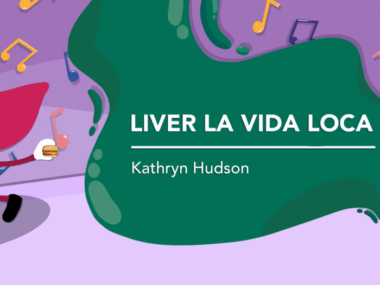Two Phase 3 pegozafermin trials for severe fatty liver disease enrolling
Together, studies seek more than 1,800 adults with liver scarring, cirrhosis
Written by |

Two Phase 3 clinical trials testing pegozafermin in people with metabolic dysfunction-associated steatohepatitis (MASH), a severe manifestation of fatty liver disease, are enrolling participants, according to the experimental therapy’s developer 89bio.
The ENLIGHTEN-Fibrosis study (NCT06318169) is recruiting up to 1,050 overweight to obese adults with MASH-related liver scarring, or fibrosis, but no cirrhosis, or permanent fibrosis that affects liver function. Enrollment is open at dozens of sites across the U.S. The second trial, dubbed ENLIGHTEN-Cirrhosis (NCT06419374), is recruiting up to 762 overweight to obese adults with MASH and compensated cirrhosis, where the liver is still able to adequately carry out its normal functions, at 14 U.S. sites.
“We are thrilled to have initiated two pivotal Phase 3 trials addressing non-cirrhotic MASH (ENLIGHTEN-Fibrosis in F2-F3) and MASH with compensated cirrhosis (ENLIGHTEN-Cirrhosis in F4), which have the potential for accelerated approval using histology [tissue analysis] in both trials,” Rohan Palekar, CEO of 89bio, said in a company press release.
Accelerated, or conditional, approval allows an experimental therapy to be approved and marketed based on preliminary efficacy data, with full approval being dependent on further trial data that confirms its effectiveness.
MASH, formerly called nonalcoholic steatohepatitis or NASH, is a serious form of metabolic dysfunction-associated steatotic liver disease (MASLD), which was formerly called nonalcoholic fatty liver disease, or NAFLD. In MASH, the abnormal buildup of fat in the liver leads to inflammation and fibrosis that damages the organ. In severe cases this can progress to cirrhosis, and ultimately to liver failure.
Results of ENLIVEN study
Pegozafermin, administered through injections under the skin, or subcutaneously, is a lab-made version of fibroblast growth factor 21 (FGF21), a naturally occurring signaling molecule involved in regulating metabolism and fat storage. By mimicking its activity, pegozafermin seeks to reduce the buildup of liver fat that drives MASH.
A Phase 2b trial called ENLIVEN (NCT04929483) tested three doses of pegozafermin — 15 or 30 mg weekly, or 44 mg every other week — against a matching placebo in 222 overweight or obese adults with MASH-related fibrosis.
The results, which were announced and published in June, showed that after six months of treatment, a significantly higher proportion of patients given 30 mg of pegozafermin weekly (26%) or 44 mg every other week (27%) saw reductions in liver fibrosis relative to the pooled placebo group (7%).
Between 23% and 37% of patients across the treatment groups had complete MASH resolution, compared with only 2% of those given the placebo. The most common side effects of pegozafermin were nausea and diarrhea.
Testing pegozafermin in more patients
With the new ENLIGHTEN Phase 3 program, 89bio expects to confirm pegozafermin’s therapeutic potential in a larger number of patients.
In both trials, participants must be overweight to morbidly obese, reflected by a body mass index (BMI), a ratio of weight and height, of at least 25 kilograms per meters squared (kg/m2), but less than 50 kg/m2. Minimum BMI for Asian participants is 23 kg/m2.
In ENLIGHTEN-Fibrosis, participants are randomly assigned to receive either 30 mg of pegozafermin once a week, 44 mg of pegozafermin every other week, or a matched placebo at the corresponding intervals for about a year.
The main goals are to assess the proportion of patients with reduced fibrosis, but without MASH worsening, and of those with MASH resolution and no fibrosis worsening based on histology, or tissue analyses.
If positive, the results will support an application for pegozafermin’s accelerated approval in the U.S. and conditional approval in Europe for non-cirrhotic MASH patients. Participants will have the chance to continue treatment, and the outcomes beyond the one-year mark are expected to support a future full approval.
In ENLIGHTEN-Cirrhosis, participants will receive weekly subcutaneous injections of either 30 mg of pegozafermin or a placebo for up to five years. The main objectives are to determine the proportion of patients having a reduction in liver fibrosis after two years, and time to disease progression after up to five years.
Two-year data from a subset of patients, should they be positive, will be used toward an application for pegozafermin’s accelerated, or conditional, approval for cirrhotic MASH patients. The participants will be monitored until a predefined number of clinical events that reflect disease progression are reported with the data expected to aid full approval.
“We believe in the prospects of pegozafermin in MASH, given the urgent medical need for more severe patients with advanced fibrosis and cirrhosis,” Palekar said.


